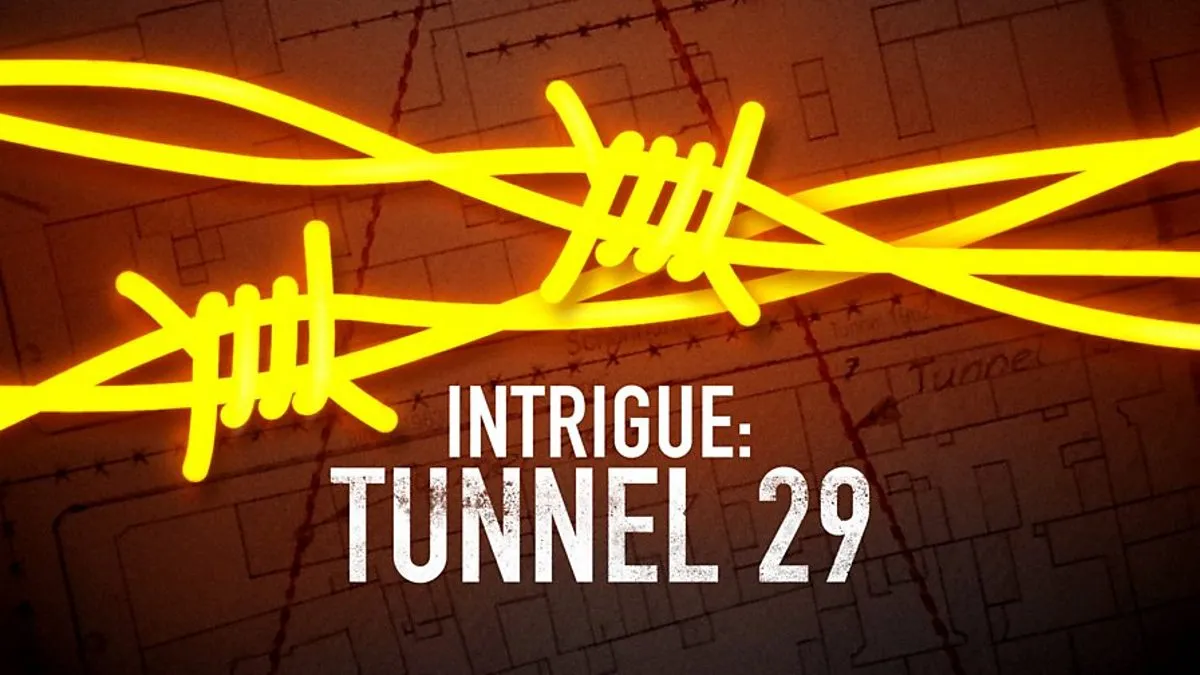PODCAST REVIEW
The BBC ‘Tunnel 29’: Digging for freedom

Part of the BBC’s Intrigue series, Tunnel 29 takes listeners underground through a gripping first-person account of smuggling East German refugees out under the Berlin Wall.
Last year, to mark the 30th anniversary of the fall of the Berlin Wall, the BBC released a ten-part podcast series. Tunnel 29 is an immersive, true story, expertly sound-designed to make you feel like you’re right there alongside the tunnellers digging their way to freedom.

Intrigue: Tunnel 29 – BBC Radio 4
Format: Series
Length: 10 episodes, 14 minutes each
Year: 2019
Listen on: Apple Podcasts, Spotify, Pocket Casts or any other podcast app or streaming service.
In 1961, Joachim Rudolph was a 22-year-old engineering student in West Berlin. Just a few months earlier, he’d fled from the East with a friend by crawling through fields and wading across rivers, narrowly avoiding detection by the border guards. A few short months after reaching safety, he risked it all by joining a group digging a tunnel back under the Berlin Wall to help others escape.
The stakes were high. If caught, the tunnel diggers could face jail time or even death. And they had reason to be afraid, with the notorious Stasi spies everywhere.
As host Helena Merriman recounts dryly in episode 2, “There’s an old East German joke. Why do Stasi officers make such good taxi drivers? Because you get in the car and they already know your name and where you live.” This is followed by recordings of intimate family moments; a baby crying, lovers flirting, families singing. Listening to these private moments is uncomfortable; as if you’re eavesdropping.
That’s because you are. You’re listening to recordings made by the Stasi using hidden microphones. The uninvited sonic intimacy is unsettling, instilling a taste of the justified paranoia that was part of East German life.
There’s a lot of historical ground to cover in this series, and Merriman deftly interweaves the backstory of the Cold War into the fast-paced action-driven plot. Like in film, characters are frozen mid-action while we turn our attention to another thread of the story. For instance, after describing Joachim’s first taste of pineapple marmalade after reaching West Berlin, Merriman pivots. “We’re going to leave him, sitting in that house in West Berlin gorging on that marmalade, because there’s something else happening that day. The 28th of September 1961. Something that will set Joachim on a collision course with the most terrifying part of the East German government.”
“The story I’m about to tell you isn’t about what was happening on the street; it’s about what was happening underneath it.”
The use of these ‘freeze frames’, accompanied by well-placed foreshadowing, allows the story to keep you in its grip while switching between storylines and historical context.
Based on interviews, Stasi archives and film footage of the tunnel, this historical reconstruction is realistic and immersive. Joachim’s words are translated into English and voiced by an actor giving a dramatised feel to this true story.
Adding to this effect is the sound design which lends the series a distinctive sonic fingerprint. The panting and digging noises add to the claustrophobic experience of the tunnel.
“The story I’m about to tell you isn’t about what was happening on the street; it’s about what was happening underneath it.” Merriman’s line is accompanied by the sound becoming muffled, as if we too are leaving the street level and going underground.
Eloise Whitmore’s soundscaping is bold and all enveloping, bringing the story to life in vivid high definition.
Once you start listening, the story sweeps you away in a rapid-fire sequence of 15-minute episodes. Will their plan work? Who is the spy leaking information to the Stasi? Will they be caught?
Detailed scenes, top-notch sound design and a riveting plot will keep you hooked. As soon as you press play, you’ll find yourself racing through and hungry for more.
If you’re keen to delve deeper into the story, here’s an interactive multimedia page full of photographs, maps and an extensive in-depth write-up of the events covered in the series.
If you’re wondering how to listen to these audio gems, local podcast organisation, Sound Africa, has prepared a handy guide to show you how.
Happy listening! DM/ML
Tunnel 29 was produced and presented by Helena Merriman; sound Designer, Eloise Whitmore; editor, Richard Knight; translation and additional research, Sabine Schereck; Joachim Rudolph’s original interviews voiced by Mark Edel Hunt.

















 Become an Insider
Become an Insider
Comments - Please login in order to comment.